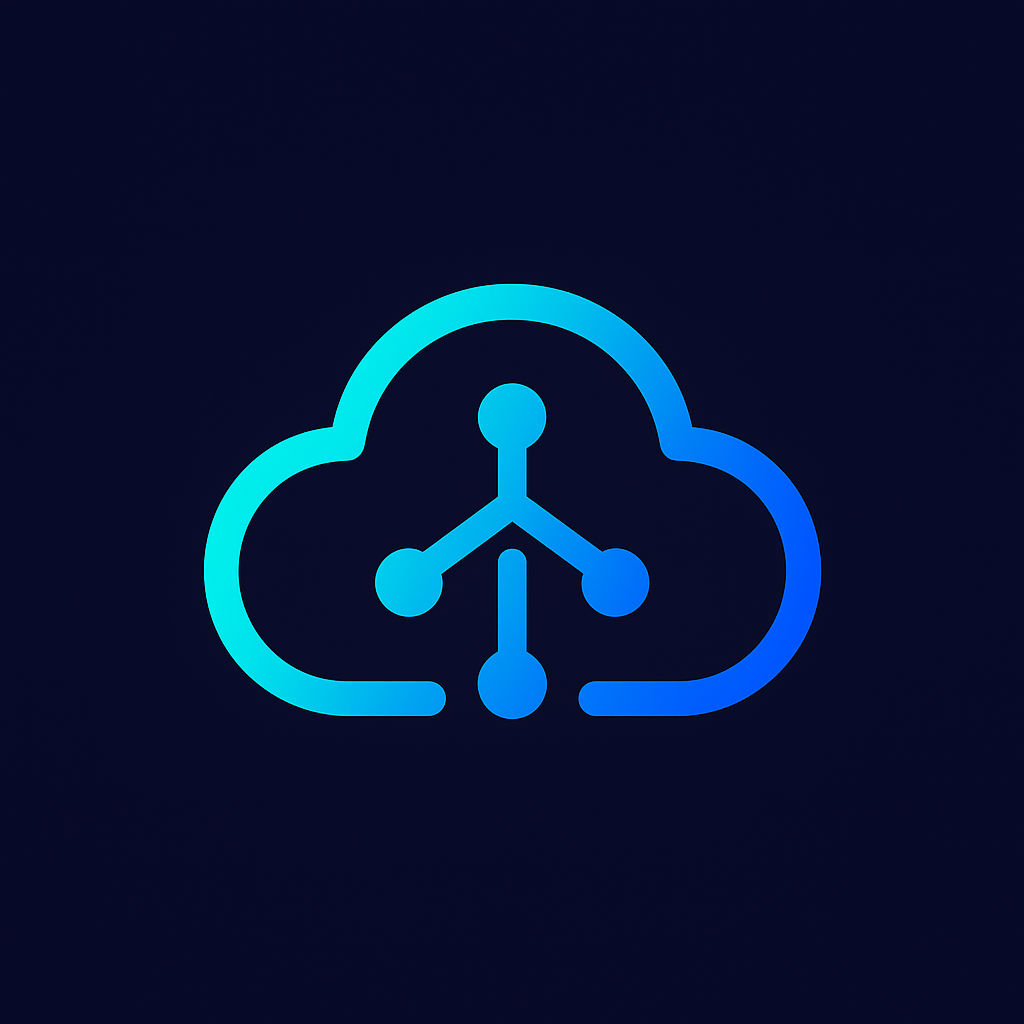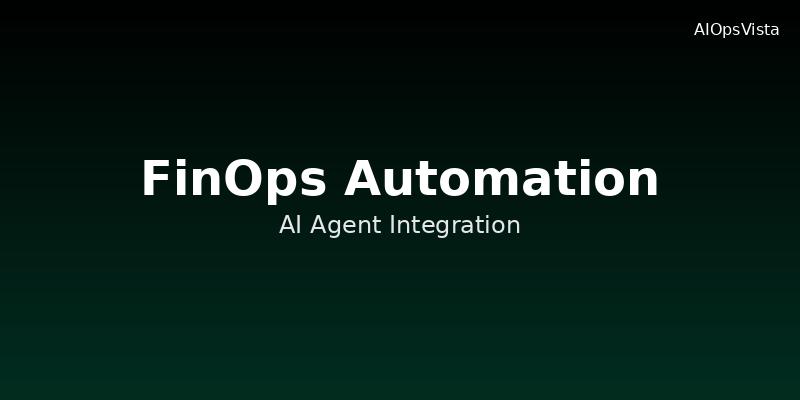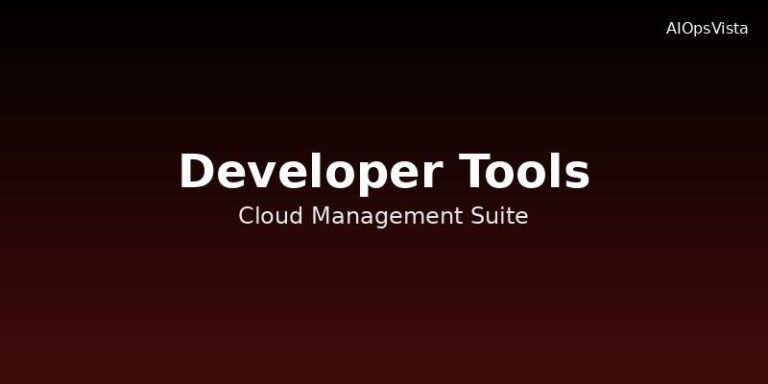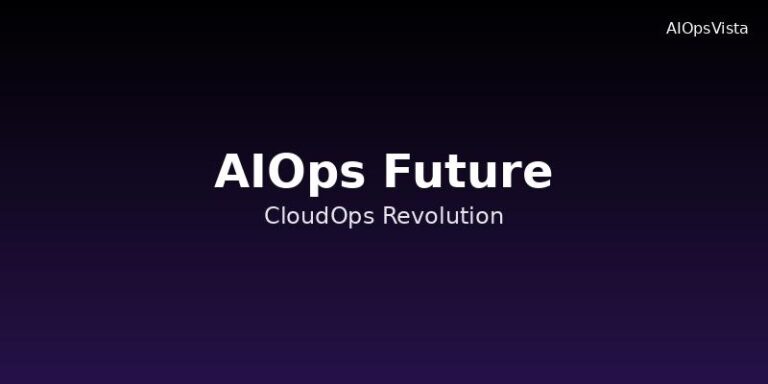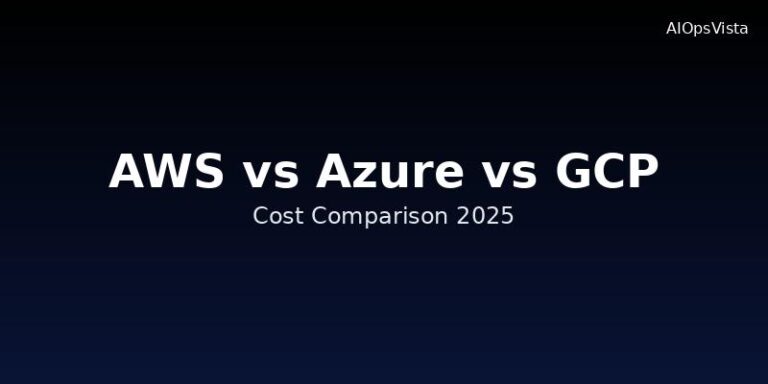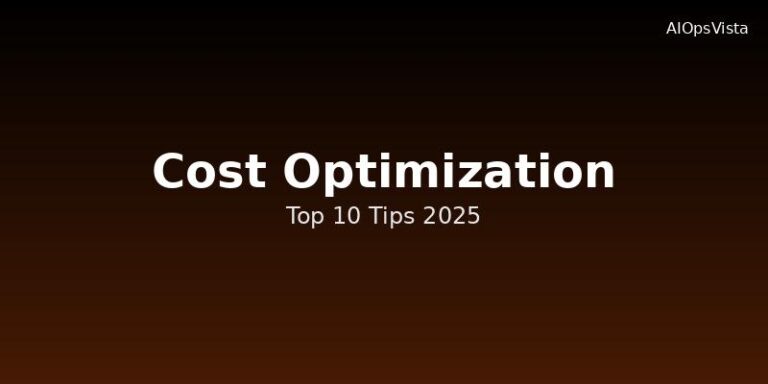Automate FinOps with AI Agents: The Next Evolution in Cloud Cost Management
Automate FinOps with AI Agents: The Next Evolution in Cloud Cost Management
The convergence of artificial intelligence and financial operations (FinOps) is revolutionizing how organizations manage cloud costs. AI agents are transforming reactive cost monitoring into proactive, automated cost optimization that continuously adapts to changing business needs and market conditions.
The FinOps Challenge
Traditional FinOps practices often involve manual analysis, periodic reviews, and reactive cost optimization. However, as cloud environments grow in complexity and scale, manual approaches become increasingly inadequate. Organizations are grappling with:
- Real-time cost monitoring across multi-cloud environments
- Dynamic resource optimization based on usage patterns
- Predictive cost forecasting and budget management
- Automated policy enforcement and governance
What are FinOps AI Agents?
FinOps AI agents are intelligent software systems that autonomously manage cloud costs using machine learning, predictive analytics, and automated decision-making. These agents can:
- Monitor costs in real-time across all cloud providers
- Analyze usage patterns to identify optimization opportunities
- Execute cost-saving actions automatically
- Learn from outcomes to improve future decisions
- Provide predictive insights for strategic planning
Key Capabilities of FinOps AI Agents
1. Intelligent Resource Optimization
AI agents continuously analyze resource utilization and automatically optimize configurations:
- Rightsizing recommendations: Identify over-provisioned instances
- Workload placement: Suggest optimal instance types and regions
- Auto-scaling policies: Dynamically adjust resources based on demand
- Storage tier optimization: Move data to cost-effective storage classes
2. Predictive Cost Forecasting
Using historical data and machine learning algorithms, AI agents can predict future costs:
- Usage pattern analysis: Forecast resource consumption trends
- Cost anomaly detection: Identify unexpected spending increases
- Budget forecasting: Predict monthly and quarterly costs
- Scenario planning: Model cost impacts of infrastructure changes
3. Automated Cost Controls
AI agents enforce cost governance policies automatically:
- Spending limit enforcement: Shut down or resize resources exceeding budgets
- Tag compliance: Ensure proper resource tagging for cost allocation
- Policy automation: Implement and enforce FinOps best practices
- Risk mitigation: Prevent costly configuration mistakes
4. Multi-Cloud Cost Optimization
AI agents provide unified cost management across cloud providers:
- Cross-cloud analysis: Compare costs and performance across providers
- Workload migration: Recommend optimal cloud provider for specific workloads
- Reserved instance management: Optimize commitment-based pricing across clouds
- Hybrid cloud optimization: Balance costs between public and private clouds
Implementing FinOps AI Agents
Assessment and Planning
Before implementing AI agents, assess your current FinOps maturity:
- Cost visibility: Evaluate current monitoring and reporting capabilities
- Data quality: Assess the accuracy and completeness of cost data
- Organizational readiness: Determine team skills and change management needs
- Technical infrastructure: Review cloud architecture and automation capabilities
Choosing the Right AI Agent Platform
Select an AI agent platform that matches your needs:
Cloud-Native Solutions
- AWS Cost Optimization Hub: Native AWS cost optimization with AI insights
- Azure Advisor: AI-powered recommendations for cost and performance
- Google Cloud recommender: ML-driven optimization suggestions
Specialized FinOps Platforms
- CloudHealth by VMware: Multi-cloud cost management with AI
- Apptio Cloudability: AI-driven cloud cost optimization
- Harness: AI-powered software delivery and cost optimization
Integration and Data Setup
Establish robust data foundations for AI agents:
- Cost data integration: Connect all cloud provider billing APIs
- Usage metrics collection: Gather comprehensive resource utilization data
- Business context: Include application and business unit metadata
- Historical data: Ensure sufficient data for AI model training
Policy Configuration and Governance
Define clear policies for AI agent behavior:
- Optimization boundaries: Set limits on automated actions
- Approval workflows: Define when human approval is required
- Risk thresholds: Establish acceptable risk levels for automation
- Compliance requirements: Ensure regulatory and security compliance
Real-World Use Cases
E-commerce Platform Optimization
An e-commerce company implemented AI agents to optimize their cloud infrastructure:
- Result: 35% reduction in cloud costs within 6 months
- Actions: Automated rightsizing, spot instance utilization, and storage optimization
- Business Impact: Improved profit margins and faster feature delivery
Financial Services Cost Management
A bank deployed AI agents for multi-cloud cost optimization:
- Result: 28% cost savings and improved compliance
- Actions: Automated tag enforcement, budget controls, and resource cleanup
- Business Impact: Better cost predictability and regulatory compliance
SaaS Company Scaling
A SaaS provider used AI agents for elastic scaling and cost control:
- Result: 40% improvement in cost efficiency during traffic spikes
- Actions: Predictive scaling, workload placement optimization, and automated cleanup
- Business Impact: Maintained performance while reducing costs
Measuring Success and ROI
Key Performance Indicators
Track these metrics to measure AI agent effectiveness:
- Cost savings percentage: Direct financial impact
- Automation rate: Percentage of cost decisions automated
- Time to optimization: Speed of implementing cost-saving measures
- Accuracy of recommendations: Quality of AI suggestions
ROI Calculation
Calculate return on investment using this framework:
- Cost savings: Direct reductions in cloud spending
- Operational efficiency: Time saved through automation
- Risk reduction: Value of prevented cost overruns
- Scalability benefits: Ability to manage larger cloud footprints
Challenges and Best Practices
Common Challenges
- Data quality issues: Inaccurate or incomplete cost and usage data
- Trust in automation: Resistance to fully automated cost decisions
- Integration complexity: Connecting disparate cloud and financial systems
- Skills gap: Lack of expertise in AI and FinOps
Best Practices
- Start small: Begin with pilot projects and gradually expand
- Implement guardrails: Set limits on automated actions to prevent issues
- Monitor and learn: Continuously evaluate AI agent performance
- Collaborate across teams: Involve finance, engineering, and operations
The Future of FinOps AI Agents
Advanced AI Capabilities
Future developments will enhance AI agent capabilities:
- Generative AI: Natural language interfaces for cost analysis
- Causal inference: Understanding why costs change
- Predictive modeling: Advanced forecasting with external factors
- Autonomous optimization: Fully automated cost management
Industry-Specific Solutions
AI agents will become specialized for different industries:
- Healthcare: Compliance-focused cost optimization
- Financial services: Risk-aware cost management
- Manufacturing: IoT and edge computing optimization
- Retail: Seasonal demand-based scaling
Integration with Broader AI Ecosystem
FinOps AI agents will integrate with other AI systems:
- AIOps integration: Unified IT and financial operations
- Supply chain AI: End-to-end cost optimization
- Business intelligence: AI-powered financial planning
Getting Started with FinOps AI Agents
Immediate Actions
- Assess current state: Evaluate your FinOps maturity and automation readiness
- Define objectives: Set clear goals for cost optimization and automation
- Choose pilot use case: Start with a specific workload or department
- Select platform: Choose an AI agent solution that fits your needs
Implementation Roadmap
- Month 1-2: Data integration and platform setup
- Month 3-4: Pilot implementation and policy configuration
- Month 5-6: Full deployment and team training
- Ongoing: Continuous monitoring and optimization
Conclusion
FinOps AI agents represent the next evolution in cloud cost management, offering organizations the ability to automate complex cost optimization decisions while maintaining control and compliance. By leveraging artificial intelligence, organizations can achieve significant cost savings, improve operational efficiency, and focus on strategic business objectives rather than manual cost management.
The key to success lies in starting with a clear strategy, implementing proper governance, and continuously learning from AI agent performance. Organizations that embrace FinOps AI agents today will be well-positioned to thrive in an increasingly complex and competitive cloud landscape.
Ready to automate your FinOps? Start with our Cloud Cost Estimator tool to understand your current cost optimization opportunities.
